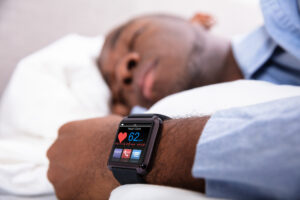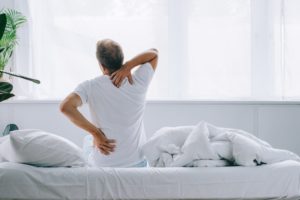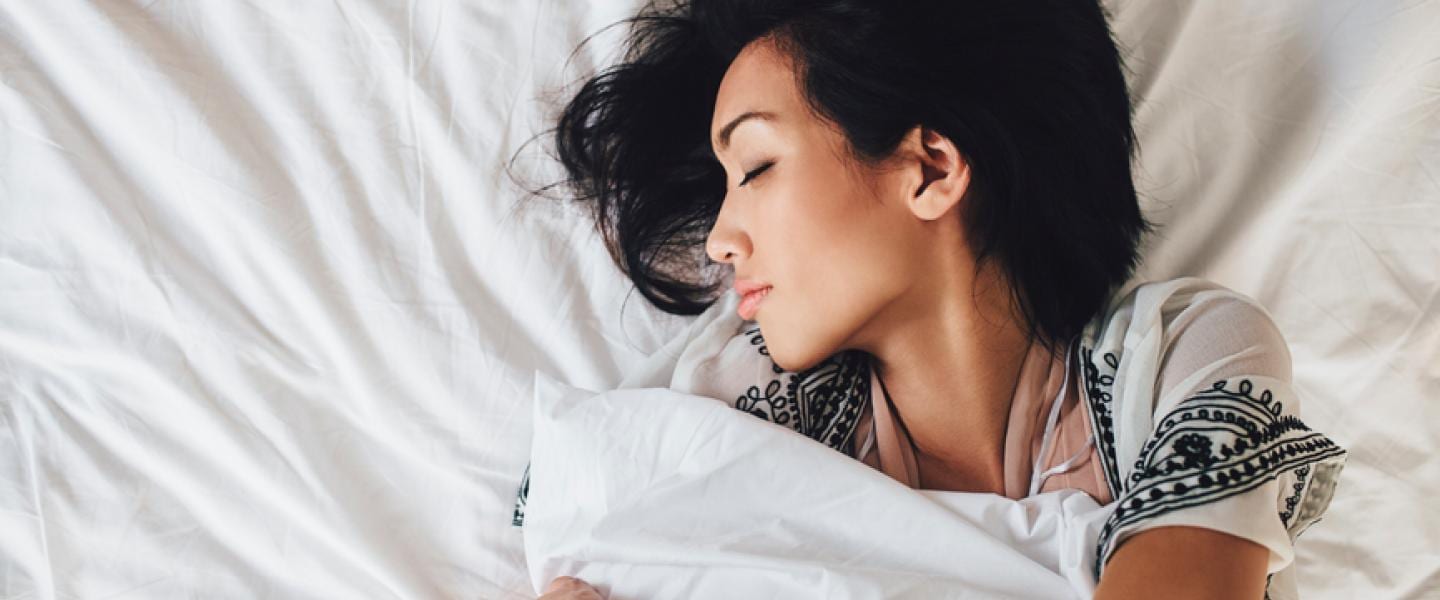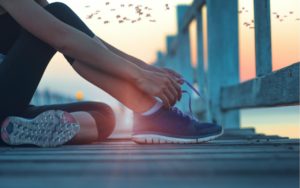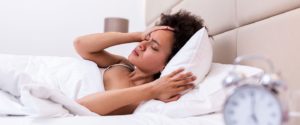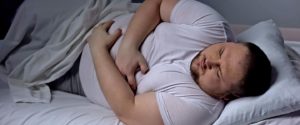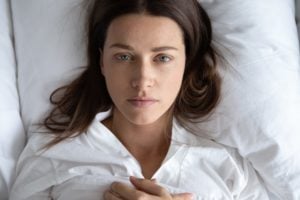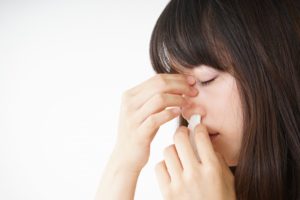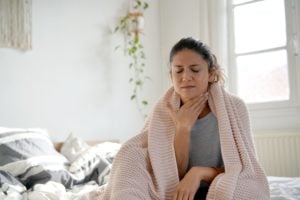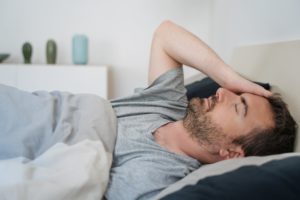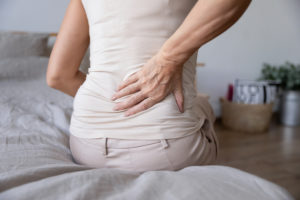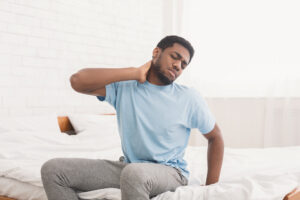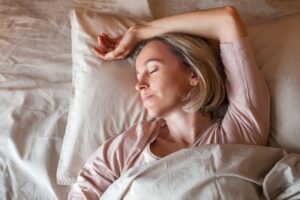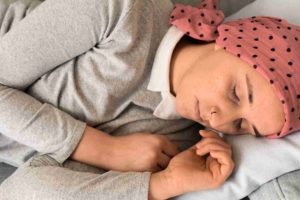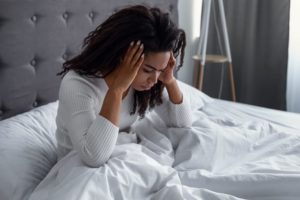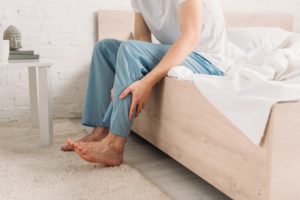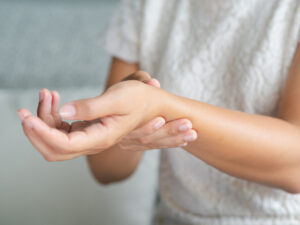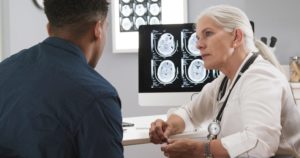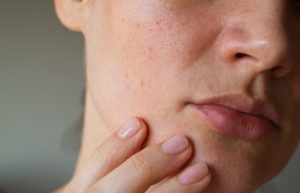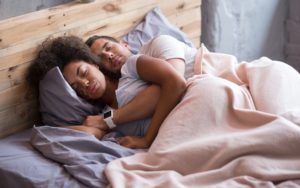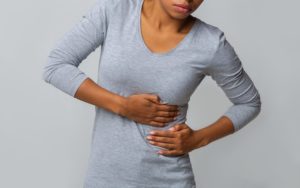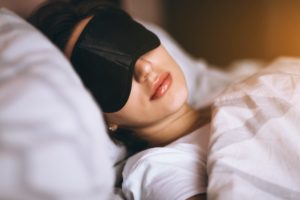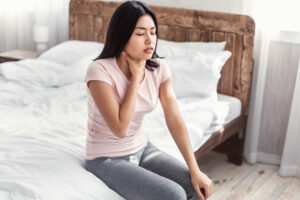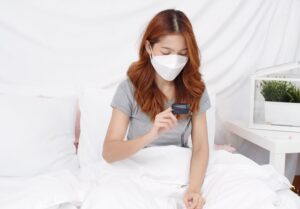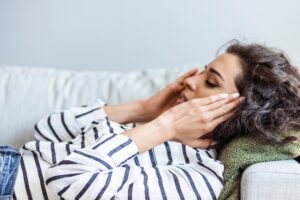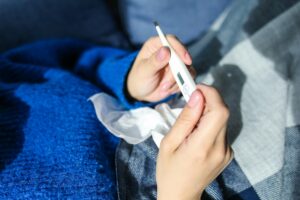How Sleep Affects Immunity
Over the past few decades, sleep science has developed immensely, revealing the far-reaching importance of sleep for virtually every system of the body. As research has delved further into the links between sleep and physical health, it has become increasingly clear that sleep and the immune system are closely connected.
The immune system is critical to overall health. It is fundamental to healing wounds, warding off infections, and protecting against chronic and life-threatening illnesses.
Sleep and the immune system have a bidirectional relationship. Immune response, like that caused by a viral infection, can affect sleep. At the same time, consistent sleep strengthens the immune system, allowing for balanced and effective immune function.
Lack of sleep, on the other hand, can throw off the immune system. Evidence indicates that in both the short- and long-term, sleep deprivation can make you sick.
Looking to improve your sleep? Try upgrading your mattress.
How Does the Immune System Work?
The immune system is a complex network throughout the body that provides multiple lines of defense against illness. These defenses are generally divided into two main categories: innate immunity and adaptive immunity. Innate immunity is a broad type of protection with several layers of defense. Adaptive immunity, also known as acquired immunity, includes defenses that you develop over time and that are targeted to specific threats.
Understanding the Immune System
Numerous components contribute to the complexity of the immune system. An important component of our immune system are leukocytes or white blood cells. The leukocyte’s job is to identify, attack, and remove foreign pathogens from our bodies. Our immune system reacts to pathogens in an immediate (innate) and learned (adaptive) way, which allows us to safely interact with our environment every day.
When a white blood cell detects a foreign pathogen, it releases cytokines to tell other white blood cells to prepare to attack. Cytokines are proteins that act as messengers for the immune system. Other chemicals, such as histamine, are also involved in immune reactions like swelling or redness.
Balanced Immune Response
When functioning optimally, the immune system maintains a delicate balance. When a threat or injury arises, the immune system triggers responses such as redness, inflammation (swelling), fatigue, fever, and/or pain.
It’s important for the immune system to be strong enough to find and attack potential threats, but it must also be well-regulated so that the body is not always on alert or in attack mode.
How Does Sleep Affect the Immune System?
Sleep provides essential support to the immune system. Getting sufficient hours of high-quality sleep enables a well-balanced immune defense that features strong innate and adaptive immunity, efficient response to vaccines, and less severe allergic reactions.
In contrast, serious sleeping problems, including sleep disorders like insomnia, sleep apnea, and circadian rhythm disruption, can interfere with the healthy functioning of the immune system.
Sleep and Innate and Adaptive Immunity
Sleep is an important period of bodily rest, and studies indicate that sleep plays a crucial role in the robustness of our immune system. In fact, sleep contributes to both innate and adaptive immunity.
Researchers have found that during nightly sleep, certain components of the immune system rev up. For example, there is an increased production of cytokines associated with inflammation. This activity appears to be driven both by sleep and by circadian rhythm, which is the body’s 24-hour internal clock.
When someone is ill or injured, this inflammatory response may help with recovery, fortifying innate and adaptive immunity as the body works to repair wounds or fight off an infection.
Studies have found, though, that this inflammation occurs even when a person isn’t actively hurt or sick. Analysis of the type of cells and cytokines involved in this nighttime immune activity indicates that its role is to strengthen adaptive immunity.
Just like sleep can help the brain consolidate learning and memory, research suggests that sleep strengthens immune memory. The interaction of immune system components during sleep reinforces the immune system’s ability to remember how to recognize and react to dangerous antigens.
Experts aren’t certain why this process takes place during sleep, but it is believed that several factors may be involved:
- During sleep, breathing and muscle activity slows down, freeing up energy for the immune system to perform these critical tasks.
- The inflammation that happens during sleep could harm physical and mental performance if it occurred during waking hours, so the body has evolved so that these processes unfold during nightly sleep.
- Melatonin, a sleep-promoting hormone that is produced at night, is adept at counteracting the stress that can come from inflammation during sleep.
While this immune system activity during sleep is beneficial, a critical aspect of this process is that it is self-regulating. As the sleep period winds down, the body’s circadian rhythm ramps down this inflammation. In this way, getting enough high-quality sleep facilitates the delicate balance of immune function that is vital for both innate and adaptive immunity.
Sleep and Vaccines
Studies have clearly shown that sleep improves the effects of vaccines, demonstrating sleep’s benefits for adaptive immunity.
Vaccines work by introducing a weakened or deactivated antigen to the body, triggering an immune response. In this way, immunizations effectively teach the immune system to recognize and attack that antigen.
Sleep is an important factor that helps determine the effectiveness of vaccines. Studies of vaccines for hepatitis and swine flu (H1N1) have found that when people don’t sleep the night after receiving a vaccine, the body’s immune response is weaker. In some cases, this reduces the vaccine’s protection and may even require a second dose of the vaccine.
While those studies involved total sleep deprivation after vaccination, other studies have found reduced vaccine effectiveness in adults who habitually fail to get at least seven hours of sleep. People who get insufficient sleep may not give their bodies enough time to develop immunological memory, potentially leaving them unprotected despite having been vaccinated.
Sleep and Allergies
Allergies occur when the immune system overreacts to something that does not cause harm to most people, and growing evidence connects sleep and allergies.
Recent research has identified that a person’s circadian rhythm is involved in regulating the body’s reaction to allergens. When the circadian rhythm is disrupted, it may increase the likelihood and severity of allergic reactions.
Lack of sleep has been tied to allergies as well. One study found that sleep deprivation made people with peanut allergies more susceptible to having an allergy attack, lowering the threshold of peanut exposure required to trigger an allergy attack by 45%.
Can Sleep Deprivation Make You Sick?
Sleep deprivation has wide-ranging health effects, and mounting evidence indicates that it can disrupt the immune system and make it easier for you to get sick.
A lack of nightly sleep has been connected to both short-term illnesses and the risk of chronic diseases like diabetes and heart problems. Researchers increasingly believe that this is tied to how sleep deprivation interferes with the normal functioning of the immune system.
In the short-term, the risk of infections has been found to be higher in people who sleep less than six or seven hours per night. Studies have found that insufficient sleep makes it more likely to catch the common cold or the flu. In addition, people in intensive care units (ICUs) who have acute recovery needs may have their healing hampered by a lack of sleep.
Lack of sleep has been connected to multiple long-term health problems, and this is believed to be related to the negative effects of sleep deprivation on the immune system. In people with healthy sleep, inflammation during the night recedes back to a normal level before waking up. In people who don’t get enough sleep, though, this normally self-regulating system fails, and inflammation persists.
This low level of systemic inflammation takes a toll, contributing to an elevated risk of diabetes, cardiovascular disease, pain, and neurodegenerative diseases. Persistent inflammation has been associated with depression, which may explain the high rates of this disorder among people with sleeping problems. Inflammation has also been linked to cancer, which animal research suggests may be worsened by insufficient sleep.
Unfortunately, while some people manage to get through the day on limited sleep, studies indicate that the immune system does not learn how to “get used” to insufficient sleep. Instead, this low-grade inflammation can become chronic, further worsening long-term health.
How the Immune System Affects Sleep
While sleep plays a critical role in immune function, the immune system also affects sleep in multiple ways.
Infections can trigger various responses from the immune system, including a lack of energy and sleepiness. This is one of the reasons why people who are sick often spend more time in bed and sleeping.
The nature of sleep changes during infection as well, altering how much time is spent in certain sleep stages. Specifically, the immune response induces more time in stage 3 non-rapid eye movement (NREM) sleep, which is also known as deep sleep. Deep sleep involves greater slowing of bodily processes, allowing the immune system to utilize more energy to fight infection.
Fever is another important immune response. Higher body temperature can trigger new waves of immune defense, and it also makes the body more hostile to many pathogens. Some experts believe that sleep changes induced by infection are designed to facilitate fever and the body’s fight against foreign pathogens.
According to this view, deep sleep (N3 stage) is increased when we are fighting an infection because it is the period of sleep when our metabolism is lowest, freeing up energy to mount a high fever response. In addition, shivering is beneficial in releasing heat and maintaining a fever. Our body cannot shiver during REM sleep due to muscle atonia, and therefore during an active infection, REM sleep is virtually abolished. The fragmentation of REM sleep during fevers has led to something called “fever dreams,” or increased nightmares during fever.
While researchers continue to study the relationships between sleep and the immune system, these effects demonstrate how closely interlinked they are and how the immune system can harness sleep to improve its ability to fight off infection.
How Can You Improve Sleep and Strengthen Your Immune System?
Given the importance of sleep for immune function, making it a priority to get a sufficient amount of uninterrupted sleep every night can work to strengthen your immune system.
Improving sleep often starts by focusing on your habits, routines, sleeping environment, and even whether you have the best mattress for your needs. Collectively, this is known as sleep hygiene, and even straightforward steps, such as having a consistent sleep schedule and avoiding using cell phones and tablets in bed, can make it easier to get a good night’s sleep.
People with chronic or severe sleeping problems or issues with recurring illnesses should talk with a doctor. A doctor can work to identify an underlying cause and the best measures to address it.
People with sleep disorders like insomnia may benefit from a treatment like cognitive behavioral therapy for insomnia (CBT-I). This approach works to reduce negative thoughts about sleep and promotes healthy sleep and reduced signs of inflammation.
Relaxation techniques, including mind-body methods like yoga or tai chi, have also shown positive results in improving sleep while enhancing immune system function, including boosting vaccine response and decreasing indicators of systemic inflammation.

Still have questions? Ask our community!
Join our Sleep Care Community — a trusted hub of sleep health professionals, product specialists, and people just like you. Whether you need expert sleep advice for your insomnia or you’re searching for the perfect mattress, we’ve got you covered. Get personalized guidance from the experts who know sleep best.
References
22 Sources
-
National Institute of Neurological Disorders and Strokes (NINDS). (2019, August 13). Brain basics: Understanding Sleep.
https://www.ninds.nih.gov/health-information/public-education/brain-basics/brain-basics-understanding-sleep -
Besedovsky, L., Lange, T., & Haack, M. (2019). The sleep-immune crosstalk in health and disease. Physiological Reviews, 99(3), 1325–1380.
https://journals.physiology.org/doi/full/10.1152/physrev.00010.2018 -
National Institute of Allergy and Infectious Diseases (NIAID). (2013, December 30). Overview of the Immune System.
https://www.niaid.nih.gov/research/immune-system-overview -
A.D.A.M. Medical Encyclopedia. (2020, February 2). Immune response. MedlinePlus.
https://medlineplus.gov/ency/article/000821.htm -
Ganz F. D. (2012). Sleep and immune function. Critical care nurse, 32(2), e19–e25.
https://aacnjournals.org/ccnonline/article/32/2/e19/20424/Sleep-and-Immune-Function -
Besedovsky, L., Lange, T., & Born, J. (2012). Sleep and immune function. Pflugers Archiv : European journal of physiology, 463(1), 121–137.
https://link.springer.com/article/10.1007/s00424-011-1044-0 -
Irwin M. R. (2019). Sleep and inflammation: partners in sickness and in health. Nature reviews. Immunology, 19(11), 702–715.
https://www.nature.com/articles/s41577-019-0190-z -
Division of Sleep Medicine at Harvard Medical School. (2007, December 18). Sleep, Learning, and Memory.
http://healthysleep.med.harvard.edu/healthy/matters/benefits-of-sleep/learning-memory -
A.D.A.M. Medical Encyclopedia. (2018, August 5). Vaccines (immunizations).
https://medlineplus.gov/ency/article/002024.htm -
Zimmermann, P., & Curtis, N. (2019). Factors that influence the immune response to vaccination. Clinical Microbiology Reviews, 32(2), e00084-18.
https://pubmed.ncbi.nlm.nih.gov/30867162/ -
Cermakian, N., Lange, T., Golombek, D., Sarkar, D., Nakao, A., Shibata, S., & Mazzoccoli, G. (2013). Crosstalk between the circadian clock circuitry and the immune system. Chronobiology international, 30(7), 870–888.
https://www.tandfonline.com/doi/full/10.3109/07420528.2013.782315 -
Dua, S., Ruiz-Garcia, M., Bond, S., Durham, S. R., Kimber, I., Mills, C., Roberts, G., Skypala, I., Wason, J., Ewan, P., Boyle, R., & Clark, A. (2019). Effect of sleep deprivation and exercise on reaction threshold in adults with peanut allergy: A randomized controlled study. The Journal of allergy and clinical immunology, 144(6), 1584–1594.e2.
https://www.jacionline.org/article/S0091-6749(19)30934-0/fulltext -
Spiegel, K., Tasali, E., Leproult, R., & Van Cauter, E. (2009). Effects of poor and short sleep on glucose metabolism and obesity risk. Nature reviews. Endocrinology, 5(5), 253–261.
https://www.nature.com/articles/nrendo.2009.23 -
Grandner, M. A., Alfonso-Miller, P., Fernandez-Mendoza, J., Shetty, S., Shenoy, S., & Combs, D. (2016). Sleep: important considerations for the prevention of cardiovascular disease. Current opinion in cardiology, 31(5), 551–565.
https://journals.lww.com/co-cardiology/Abstract/2016/09000/Sleep__important_considerations_for_the_prevention.12.aspx -
Prather, A. A., Janicki-Deverts, D., Hall, M. H., & Cohen, S. (2015). Behaviorally Assessed Sleep and Susceptibility to the Common Cold. Sleep, 38(9), 1353–1359.
https://pubmed.ncbi.nlm.nih.gov/26118561/ -
Pisani, M. A., Friese, R. S., Gehlbach, B. K., Schwab, R. J., Weinhouse, G. L., & Jones, S. F. (2015). Sleep in the intensive care unit. American journal of respiratory and critical care medicine, 191(7), 731–738.
https://www.atsjournals.org/doi/10.1164/rccm.201411-2099CI -
Irwin, M. R., & Opp, M. R. (2017). Sleep Health: Reciprocal Regulation of Sleep and Innate Immunity. Neuropsychopharmacology : official publication of the American College of Neuropsychopharmacology, 42(1), 129–155.
https://www.nature.com/articles/npp2016148 -
Hakim, F., Wang, Y., Zhang, S. X., Zheng, J., Yolcu, E. S., Carreras, A., Khalyfa, A., Shirwan, H., Almendros, I., & Gozal, D. (2014). Fragmented sleep accelerates tumor growth and progression through recruitment of tumor-associated macrophages and TLR4 signaling. Cancer research, 74(5), 1329–1337.
https://pubmed.ncbi.nlm.nih.gov/24448240/ -
Ibarra-Coronado, E. G., Pantaleón-Martínez, A. M., Velazquéz-Moctezuma, J., Prospéro-García, O., Méndez-Díaz, M., Pérez-Tapia, M., Pavón, L., & Morales-Montor, J. (2015). The Bidirectional Relationship between Sleep and Immunity against Infections. Journal of immunology research, 2015, 678164.
https://www.hindawi.com/journals/jir/2015/678164/ -
Krueger, J. M., & Opp, M. R. (2016). Sleep and Microbes. International review of neurobiology, 131, 207–225.
https://www.google.com/url?q=https://www.ncbi.nlm.nih.gov/pmc/articles/PMC5441385/&sa=D&ust=1606782218249000&usg=AOvVaw3H50FTU_mlb5AVPF0hIV_j -
Irwin, M. R., Olmstead, R., Carrillo, C., Sadeghi, N., Breen, E. C., Witarama, T., Yokomizo, M., Lavretsky, H., Carroll, J. E., Motivala, S. J., Bootzin, R., & Nicassio, P. (2014). Cognitive behavioral therapy vs. Tai Chi for late life insomnia and inflammatory risk: a randomized controlled comparative efficacy trial. Sleep, 37(9), 1543–1552.
https://academic.oup.com/sleep/article/37/9/1543/2416985 -
Irwin M. R. (2015). Why sleep is important for health: a psychoneuroimmunology perspective. Annual review of psychology, 66, 143–172. https://doi.org/10.1146/annurev-psych-010213-115205
https://www.ncbi.nlm.nih.gov/pmc/articles/PMC4961463/






